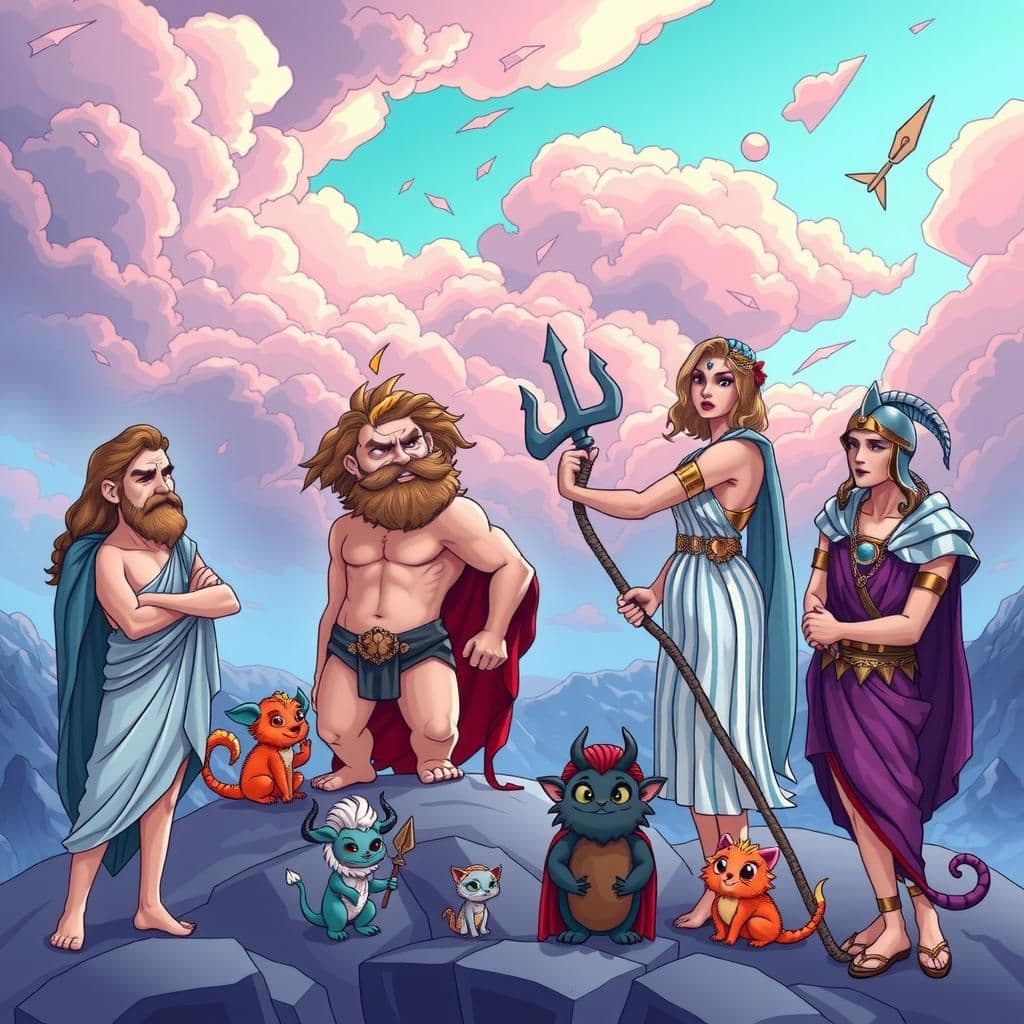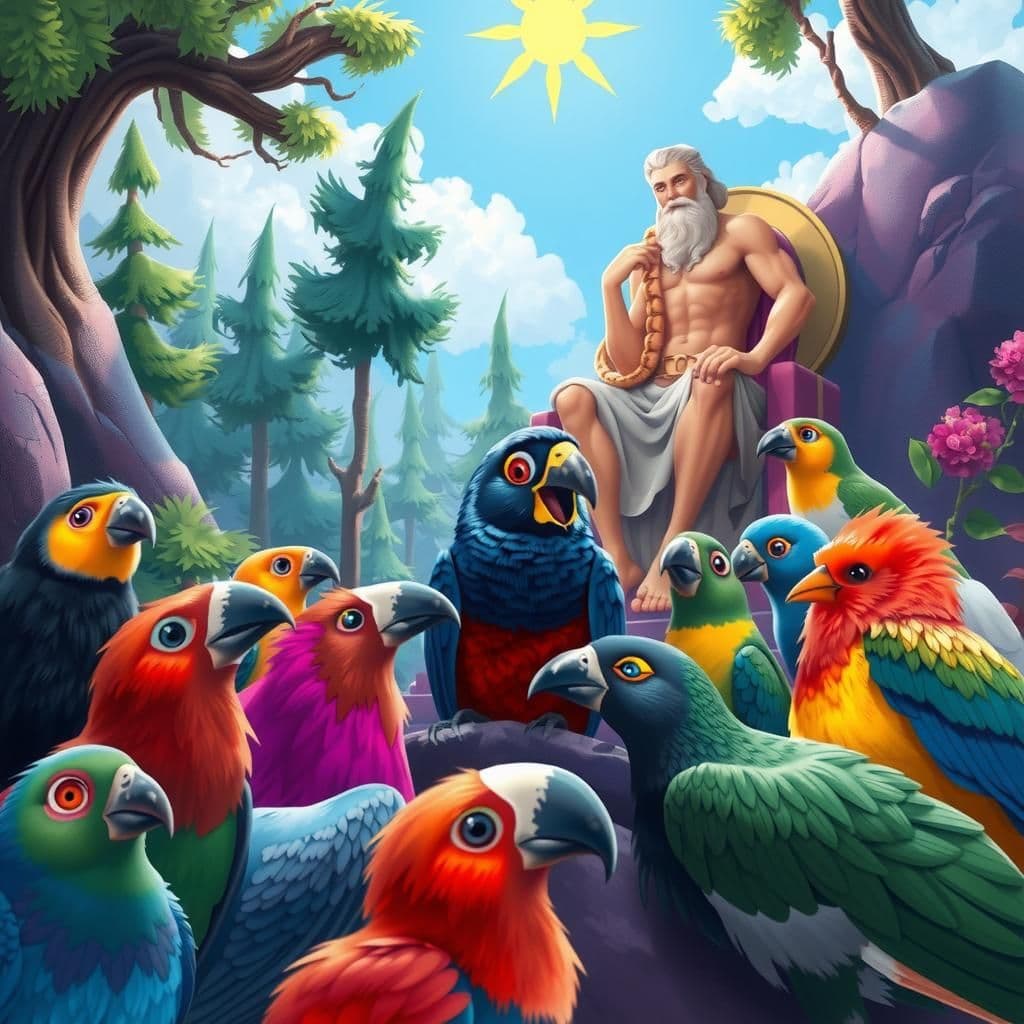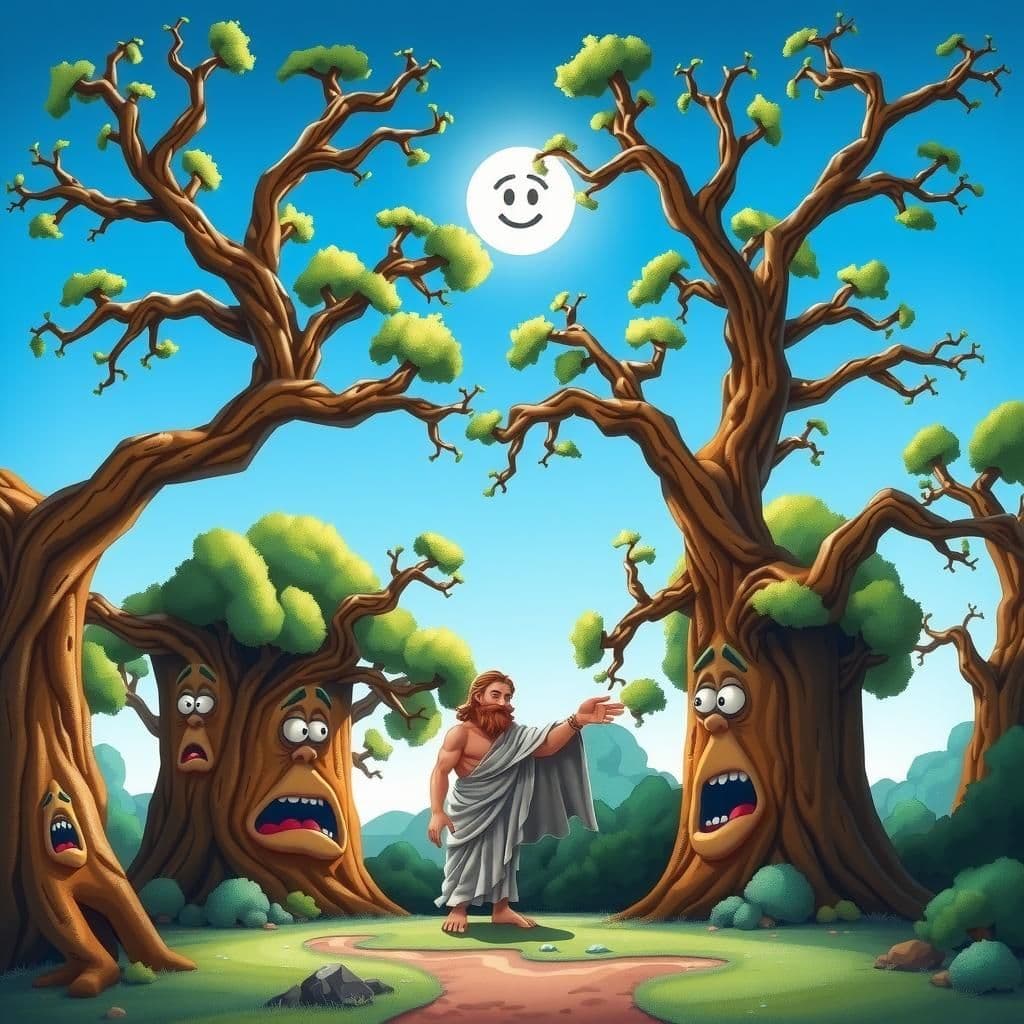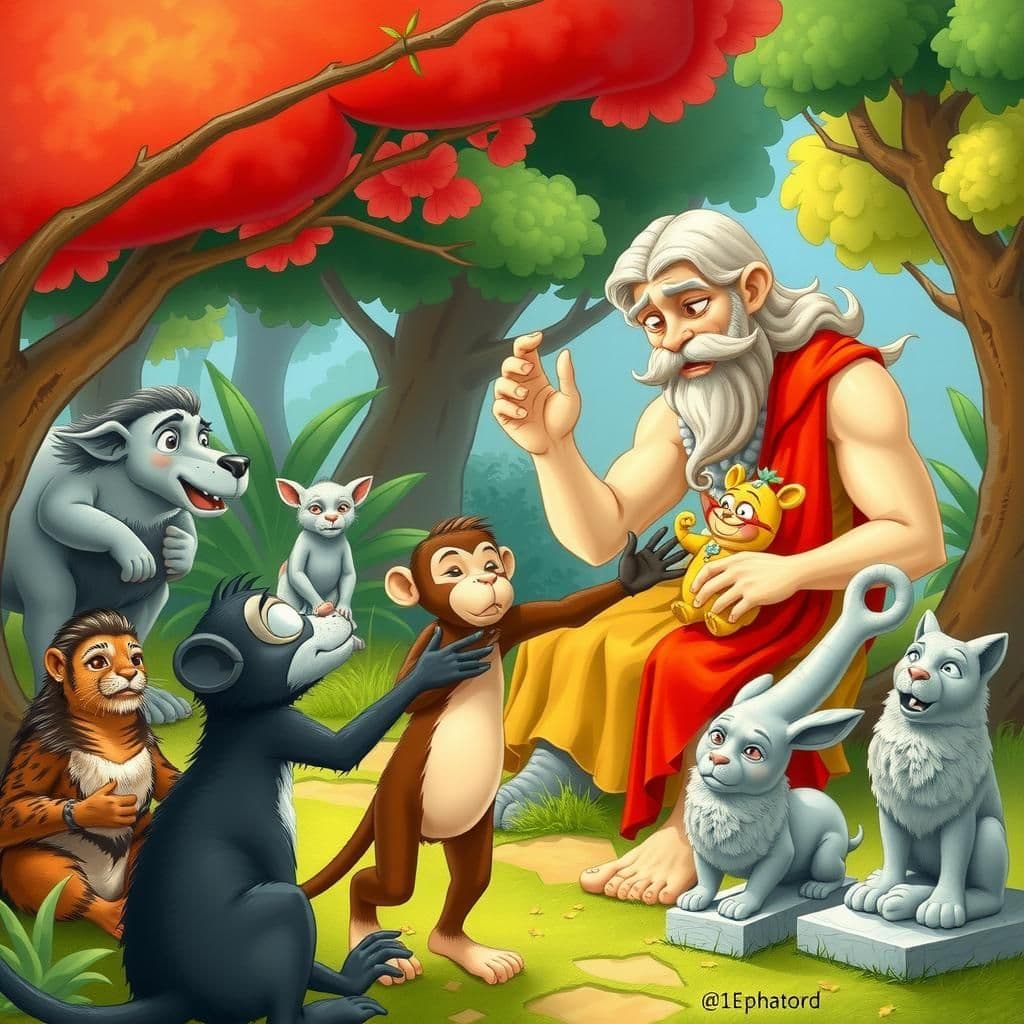Jupiter Neptune Minerva and Momus

Story Summary
In an ancient legend, Jupiter, Neptune, and Minerva each create significant entities—man, bull, and house—and dispute over whose creation is the most perfect. They appoint Momus as a judge, but his incessant faultfinding leads to humorous critiques of each creation, prompting Jupiter's indignation and Momus's expulsion from Olympus. This funny story offers an uplifting moral about the pitfalls of constant criticism, making it a delightful addition to bedtime moral stories and simple moral tales.
Click to reveal the moral of the story
The moral of the story is that relentless criticism and envy can lead to one's downfall, as those who focus solely on finding faults in others may ultimately lose their place and respect.
Historical Context
This story, rooted in ancient Greek mythology, highlights the themes of creation and criticism among the gods, particularly focusing on the figures of Jupiter (Zeus), Neptune (Poseidon), and Minerva (Athena). The tale reflects cultural values around artistry, perfection, and the human condition, with Momus representing the voice of skepticism and dissent. Variations of this myth can be found in Ovid's "Metamorphoses," where the interplay of divine creation and human imperfection is explored, showcasing the ancient Greeks' fascination with the flaws inherent in both gods and mortals.
Our Editors Opinion
This ancient legend highlights the perils of relentless criticism and the futility of perfectionism in modern life, reminding us that constant faultfinding can hinder progress and collaboration. For example, in a workplace setting, a team member who habitually criticizes colleagues' ideas without offering constructive feedback may stifle creativity and morale, ultimately preventing the team from achieving its goals.
You May Also Like

Jupiter and the Birds
In "Jupiter and the Birds," Jupiter calls upon all the birds to choose the most beautiful one as their king. The jackdaw, disguised with borrowed feathers, initially impresses but is soon exposed, prompting indignation from the others. However, Jupiter praises the jackdaw's cleverness, declaring him king and illustrating a thought-provoking moral: that wit is more valuable than mere appearance, making this a memorable story with moral significance.

The Oaks and Jupiter
In "The Oaks and Jupiter," a classic moral story, the oaks lament their constant threat of being cut down, feeling burdened by life. Jupiter responds with a wise lesson, explaining that their own strength and usefulness as pillars for carpenters and farmers make them targets for the axe. This engaging moral tale highlights how our qualities can lead to both advantages and misfortunes, a theme often found in childhood stories with moral lessons.

Jupiter and the Baby Show
In "Jupiter and the Baby Show," a clever Monkey enters her unattractive cub in a competition hosted by Jupiter, who initially mocks the cub's appearance. However, the Monkey turns the tables by highlighting the flaws in Jupiter's own offspring depicted in antique sculptures, prompting Jupiter to award her the first prize to avoid embarrassment. This impactful moral story emphasizes the value of humility and the importance of recognizing one's own imperfections, making it a noteworthy addition to short story collections with moral lessons.
Other names for this story
Divine Disputes, The Judge of Olympus, Faults of the Gods, Olympian Judgment, The Perfection Contest, Critique of Creation, Legends of the Gods, Momus' Verdict
Did You Know?
This story highlights the theme of criticism and the subjective nature of perfection, as the judge Momus critiques the creations of the gods instead of celebrating their accomplishments, ultimately leading to his downfall. It serves as a reminder that constant faultfinding can alienate one from even the most esteemed circles.
Subscribe to Daily Stories
Get a new moral story in your inbox every day.